The Nervous System
The nervous system is a complex network of nerves and cells that carry messages to and from the brain and spinal cord to various parts of the body. It is responsible for coordinating and controlling many body activities.
Parts of the Nervous System
There are two main parts of the nervous system: the central nervous system (CNS) and the peripheral nervous system (PNS).
- Central Nervous System (CNS): This includes the brain and spinal cord. The brain is the control center of the body, while the spinal cord serves as a pathway for messages between the brain and the rest of the body.
- Peripheral Nervous System (PNS): This includes all the nerves outside the CNS. It connects the CNS to the limbs and organs, allowing for communication between the brain and the rest of the body.
Functions of the Nervous System
The nervous system has three main functions:
- Sensory Function: It gathers information from both inside and outside the body through sensory receptors.
- Integrative Function: It processes and interprets the sensory information to decide on an appropriate response.
- Motor Function: It carries out the response by sending signals to muscles, glands, and organs.
Nervous System Disorders
There are various disorders that can affect the nervous system, such as:
Study Guide
Here are some key points to remember when studying the nervous system:
- Identify the main parts of the nervous system, including the CNS and PNS.
- Understand the functions of the nervous system, such as sensory, integrative, and motor functions.
- Be able to explain how the nervous system coordinates and controls body activities.
- Recognize common nervous system disorders and their effects on the body.
◂Science Worksheets and Study Guides Eighth Grade. The nervous system
Study Guide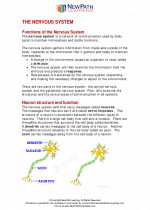 The nervous system
The nervous system  Worksheet/Answer key
Worksheet/Answer key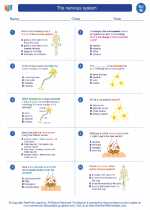 The nervous system
The nervous system  Worksheet/Answer key
Worksheet/Answer key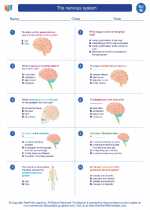 The nervous system
The nervous system  Worksheet/Answer key
Worksheet/Answer key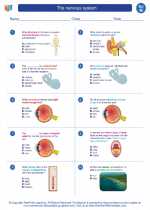 The nervous system
The nervous system  Vocabulary/Answer key
Vocabulary/Answer key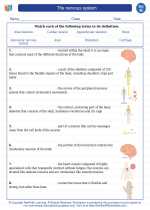 The nervous system
The nervous system  Vocabulary/Answer key
Vocabulary/Answer key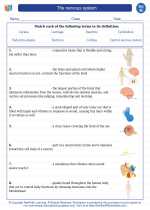 The nervous system
The nervous system  Vocabulary/Answer key
Vocabulary/Answer key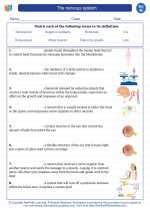 The nervous system
The nervous system  Vocabulary/Answer key
Vocabulary/Answer key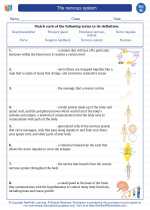 The nervous system
The nervous system  Vocabulary/Answer key
Vocabulary/Answer key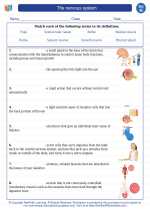 The nervous system
The nervous system  Vocabulary/Answer key
Vocabulary/Answer key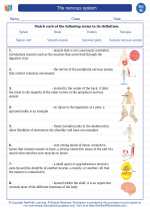 The nervous system
The nervous system 

 Worksheet/Answer key
Worksheet/Answer key
 Worksheet/Answer key
Worksheet/Answer key
 Worksheet/Answer key
Worksheet/Answer key
 Vocabulary/Answer key
Vocabulary/Answer key
 Vocabulary/Answer key
Vocabulary/Answer key
 Vocabulary/Answer key
Vocabulary/Answer key
 Vocabulary/Answer key
Vocabulary/Answer key
 Vocabulary/Answer key
Vocabulary/Answer key
 Vocabulary/Answer key
Vocabulary/Answer key
